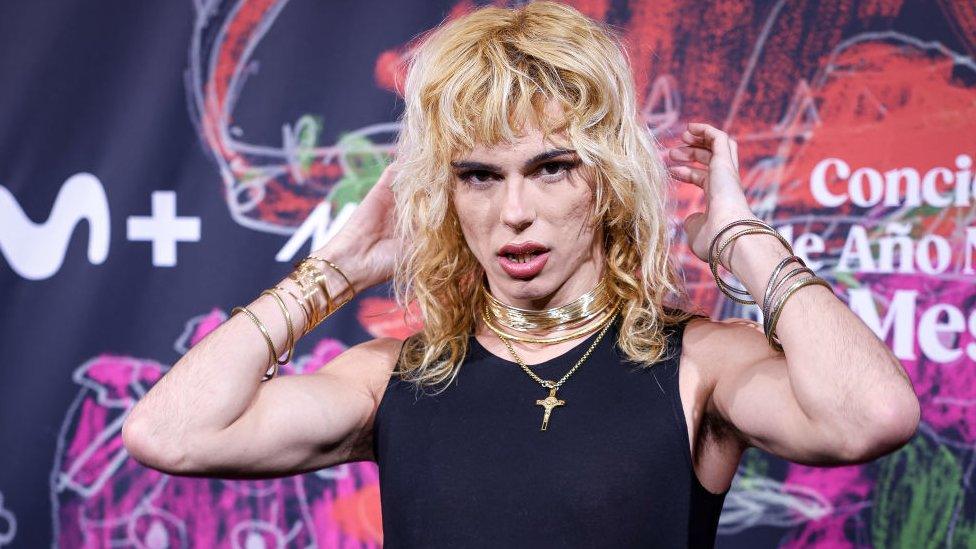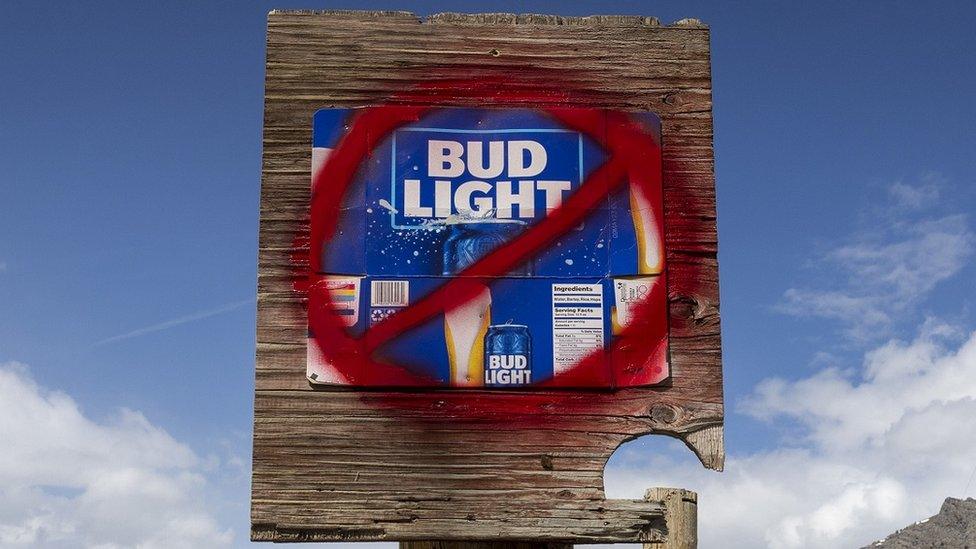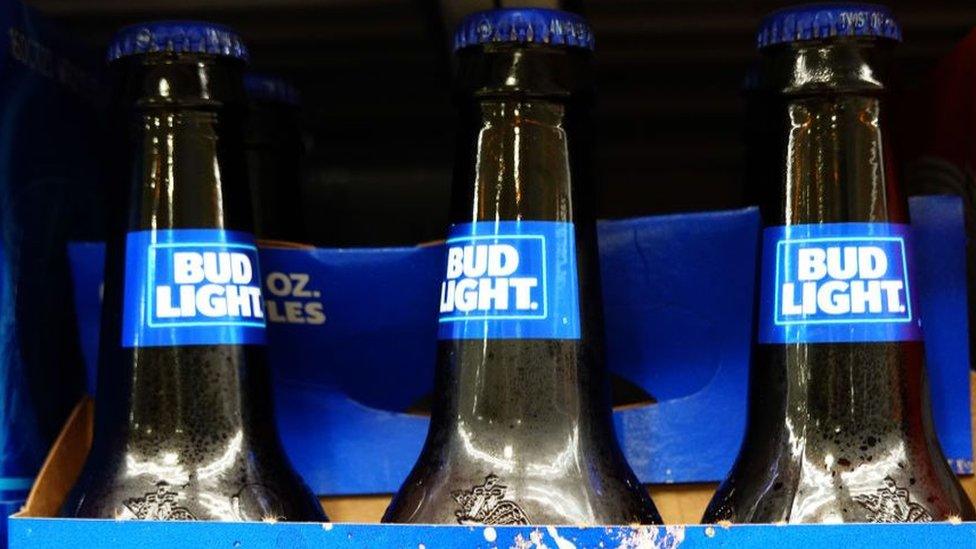Doritos cuts ties with transgender influencer over posts
- Published

Transgender influencer Samantha Hudson was part of a short-lived Doritos campaign
The company that makes Doritos cut ties with a transgender influencer after reports she posted about violence and paedophilia.
Samantha Hudson, a singer and actor from Spain, has around 370,000 Instagram followers and was part of a social media campaign for the brand.
In a statement Doritos condemned Hudson's social media posts.
But its short-lived campaign led to calls, led by right-wing activists in the US, to boycott the snack food.
Doritos Spain, owned by American food giant Pepsico, said it had ended its relationship with the influencer.
"After the campaign started, we were made aware of Samantha's deleted tweets from around 2015," the company said in a statement. "We strongly condemn words or actions that promote violence, or sexism of any kind."
As a teenager, Hudson tweeted mocking posts about rape victims and wanting to do "depraved things" to "a 12-year-old girl", according to a report by Rolling Stone.
Hudson, now 24, later apologised for the posts and called them "barbarities" and "dark humour".
The posts appear to have been deleted, but screenshots continue to circulate online.
Doritos had posted an Instagram video featuring Hudson, who is known both for entertainment work and political activism, on Sunday.
But the company deleted it after the offensive posts came to light.
That was not enough to head off calls for a boycott, with right-wing American activists among the most prominent voices pressing people to stop buying the snack.
The boycott calls were not as strong in Spain, but some conservatives did take issue with the influencer. Arturo Villa, a Spanish political analyst, tweeted a picture of Pepsi products with the message: "You should know that if you buy any of these products you will be financing people like Samantha Hudson."
Jenna Ellis, who was part of Donald Trump's 2020 campaign legal team and who recently pleaded guilty in connection with an election interference case in Georgia, tweeted: "This is disgusting. Give Doritos the Bud Light treatment."
A boycott campaign targeted Bud Light last year after it entered into a brief partnership with transgender influencer Dylan Mulvaney.
There were no reports of offensive conduct on the part of Mulvaney, but conservative activists objected to the beer using a transgender person in its marketing efforts and to some of Mulvaney's previous statements promoting transgender rights.
A large boycott movement prompted a company executive to issue a statement saying: "We never intended to be part of a discussion that divides people."
In turn, the company's response was criticised by LGBTQ groups and some gay bars refused to stock the company's products.
Sales of Bud Light, owned by Belgium-based brewing giant AB Inbev, decreased by about a quarter and have been slow to recover.
The BBC has contacted Hudson for comment.
Related topics
- Published14 June 2023

- Published3 August 2023
